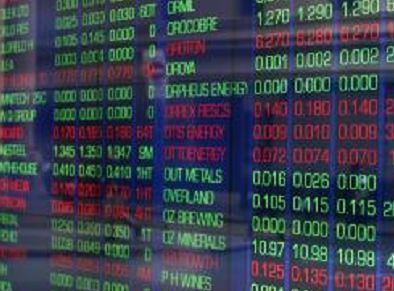
The London market climbed higher, buoyed by takeover speculation at commodity giant Glencore.
The FTSE 100 Index was 133.6 points higher at 6263.2, as the global equity volatility seen in recent weeks shows little sign of abating.
France’s Cac 40 was up more than 3%, while Germany’s DAX lifted by around 2%.
Under pressure trader and miner Glencore was up more than 12%, or 11.8p to 107p, after strong gains in Asia overnight sparked by trader talk that the business might be put up for sale.
But in London the firm said “it is not aware of any reasons for these price and volume movements.”
The London-listed Swiss-based firm, which has lost around two-thirds of its value this year, recently pledged to investors to make disposals and cut its 30 billion US dollars (£20 billion) debt mountain by a third.
Traders were unphased by the UK’s weak service sector data, which slowed to a two-and-a-half year low last month. This was accompanied by disappointing service sector surveys across the eurozone.
The pound was little changed against the US dollar at 1.52, but was slightly down against the euro at 1.35.
Lloyds Banking Group was up 0.8p to 77.3p, after Chancellor George Osborne said the Government would sell some £2 billion worth of shares to retail investors at a 5% discount to the market price in the spring.
Mr Osborne said small investors would be given “a chance to get something back having put all that money in under the last Labour government.”
The Government has so far recouped £15 billion of the £20.5 billion it spent rescuing Lloyds, and currently owns just under 12% of the bank.
Barclays was 4.1p higher to 252.7p and Royal Bank of Scotland was up 4.8p to 325.6p, as the market welcomed the steady reduction in the state’s holdings in banking sector.
The oil sector was also up on a rise of just over 1% to Brent Crude to just under 49 US dollars.
BP lifted 3.5%, or 12.1p to 363.4p, while Royal Dutch Shell was 3.7% higher, or 60p to 1682p.
Shares in ITV rose 3.6p to 251.4p, despite England being knocked out early of the Rugby World Cup, which it broadcasts exclusively.
A note from brokers Liberum said their would be little financial impact on the broadcaster, because “TV advertising slots tend to be booked four to six weeks in advance so virtually all the slots for October would already have been booked.”
Recommended for you
